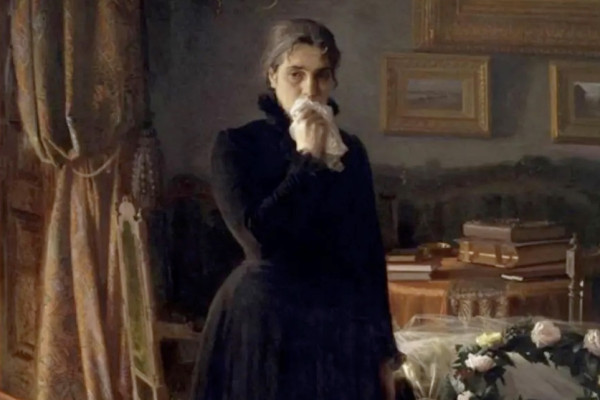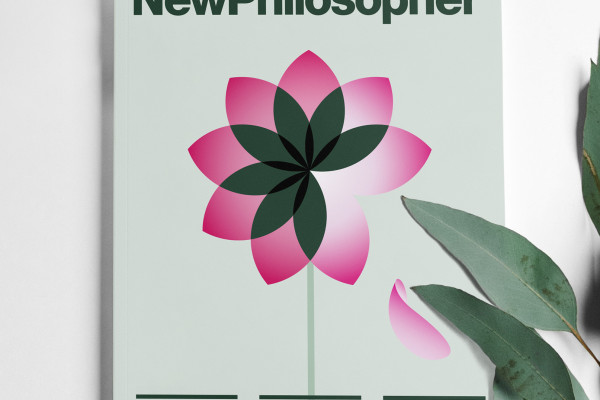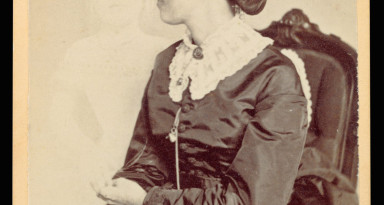Michael Cholbi is Professor and Personal Chair in Philosophy at the University of Edinburgh. He has published widely in ethical theory, practical ethics, and the philosophy of death and dying. His books include Suicide: The Philosophical Dimensions, Understanding Kant’s Ethics, and Grief: A Philosophical Guide. Cholbi is the editor of several scholarly collections, including Immortality and the Philosophy of Death; New Directions in the Ethics of Assisted Suicide and Euthanasia; and the Oxford Handbook of the Philosophy of Suicide. He is the co-editor of Exploring the Philosophy of Death and Dying: Classic and Contemporary Perspectives and his work has appeared in the scholarly journals Ethics, Mind, Philosophical Studies, Philosophy and Phenomenological Research, and Oxford Studies in Normative Ethics. Interview by Zan Boag, from the Loss edition.
Zan Boag: I’d like to start with the various ways that one can grieve. I’d like to get a definition of the grieving process, if I could, from you.
Michael Cholbi: I would say that grief is our response – usually it’s fairly emotionally rich – to transformations in our relationships with other people or possibly other things, where those are the kinds of relationships that we’ve invested our identity in, that are central to how we think of ourselves, that are sources of our reasons for doing what we do day-to-day in the world. So in my view, there’s a wide range of different kinds of events that can prompt grief.
My work tends to focus on bereavement, grief related to the deaths of those we’ve invested ourselves in. But I think we can grieve breakups, divorces, retirement from the workforce, and other kinds of transformations in our relationships with other people.
It’s interesting you talk about transformations. I remember interviewing a philosopher by the name of L.A. Paul, who spoke about transformative experiences. I wonder how grief fits in, whether the grieving process itself is a transformative experience for the individual who experiences it?
Let me first say that there’s a very good article by a philosopher, Jelena Markovic, who actually argues for the claim that grief is transformative. I do think that we should approach grief with the expectation that it’s probably going to change us in some way. There can be episodes of grief where we’re grieving someone in whom our identity is invested, but maybe the investment isn’t all that great. Maybe a favourite pop star of ours died, and we feel some grief, but it ends with our being essentially the same as we were before they died. But I think in the cases of more momentous grief, we should definitely expect that we’re going to come out of it slightly different than we came in. My hope is that the changes can be positive for us, that it can be a source of self-understanding or self-insight. But I do think grief tends to alter our conception of ourselves in the world. It alters how we relate to the world in the broadest sense of ethical. It can change what we care about or what we’re attached to, and even the day-to-day patterns in our lives.
Staying on this idea that the changes can be positive – is there something to be gained from loss, through the process of grieving? Can you be in a better position after having gone through this grieving process?
I don’t want to be Pollyanna-ish here and say, “Well, we should be so glad for grief,” or that we should be immune or indifferent to loss. We humans are creatures that have a sense of ourselves in time and a sense of the contingency of the things that matter to us. We know that much of what we care about is likely – at some point – to no longer exist. So, on the one hand, we have to recognise that we do lose things in the course of our lives. But on the other hand, I would describe my own view about grief as a kind of guarded optimism, that we can gain a certain kind of self-knowledge or self-understanding from grieving. We can, in the course of grieving, lose our way in the world. Grief is an indicator that we’ve lost something that anchored our experience in the world and we’re struggling to figure out how to continue in light of that loss. And grief registers that loss. It helps us make the loss visible to us. But I also think grief is a resource for figuring out how to find our way again, a tool for reorienting ourselves to the world after loss. So I think there’s something to be gained from grief, but I’m not suggesting that we should maximise our opportunities for grieving by losing as much as we can or creating as many chances for loss as the world will afford us.
It’s part and parcel of being human. It’s inevitable that we’re going to experience such a loss throughout the course of our lives. In some cases, it may be something that is to be expected, as in the loss of a parent, but then you come to those other types of losses where it’s unexpected, and, potentially they’re a little bit more difficult to deal with, say the loss of a child, the loss of a friend at a young age, a life transformation of some sort, such as losing a job you didn’t expect to lose. How does this differ from an expected loss?
There’s probably something more traumatic or upsetting about the losses of things that we don’t expect to lose. But one of the deeply puzzling things about grief is that we do know that the things that we are attached to are vulnerable to being destroyed, and in particular, that our relationships with others can erode or disappear. And yet we seem unable, I think, to be fully prepared for that loss, even though we know it’s coming. Certainly we know, let’s say in the case of our parents for example, that there’s a very good chance that we will outlive them, that we will lose them. We can deliberate about that, we can reflect upon that, we can try to ready ourselves for that. Yet even with the best preparation, we nevertheless feel grief. We can’t emotionally or psychologically outrun grief in the end.
In this respect, all of the losses that prompt grief are losses for which we’re rarely fully prepared. Of course though, the ones that are abrupt and come out of the blue, we’re less prepared for.
You talk about not being able to outrun grief, but at the same time, after losing someone close to us, there is a grieving process, of course, but life tends to go on just after this has happened. The person about whom one has been grieving fades into the background and the sadness tends to dissipate. Why do you think we’re able to adapt so quickly when we’ve lost someone who at the time was so precious to us?
I’d ever so slightly contest the premise of your question: There are people who don’t adapt. It’s not completely uncommon for people who suffer particularly intense forms of grief, say the grief that a widow or a widower is feeling after the death of a long-term spouse, to experience shock is so great that it immediately causes health problems, and they end up dying not long after their spouse. And of course, perhaps even more sadly, some people engage in suicidal conduct in the course of grieving. So, I think it’s worth noting that sometimes people don’t really recover. Fortunately, that’s not the norm.
As to the question of why we adapt so quickly, we should be careful as to what the presuppositions of that question are. There are philosophers that have made much of how quickly we seem to ‘recover’ from grief in the sense that we don’t feel sadness as long as we might expect, or the loss seems to diminish in that we don’t feel that same sense of anguish as time goes on. Yet I would underscore there, that we shouldn’t identify or equate the diminishment of that sadness or anguish with adaptation. There are other things that go on in grieving. People try to figure out what their lives are going to look like and what the central concerns of their future lives are going to be. That’s also part of the adaptation process. And even when we do adapt, this does not amount to nor necessarily entail anything like forgetting. It’s not the case that we forget our loved ones, even though that sadness that tends to characterise the early stages of grief does tend to dissipate over time.
You argue in Grief: A Philosophical Guide that we have a duty to ourselves to grieve, and I’m quoting here, “... because we have a duty to pursue self-knowledge, and grief is an opportunity for self-knowledge.” Could you expand a bit on this point? What sort of self-knowledge can we hope for from the grieving process?
One of the things to say about grieving is that it tends to be a very emotional experience for people, very emotionally intensive. One of the roles that our emotions play in our lives is that they disclose to us what we value. So, when you, for example, feel sadness in the course of grief, that’s an indicator to you that you have lost something of value. Of course, in the process of grieving, you might feel other emotions. You might feel, say anger. That tells you something about what you’ve lost too. It’s an insight into the relationship with that person who’s now deceased. So too, I would say you gain insight from other emotions. You might feel guilt or anxiety in midst of grief.
The fact that grief tends to be such an emotionally rich experience indicates how it is that it can be informative to us about what we value. Our emotions tell us what we care about. So, in undergoing these emotions, I think we are put face to face with a powerful set of resources that inform us what we care about, and also inform us about what we want to care about. What is it that we want to retain in our relationship with the deceased, and what in that relationship might we want to jettison or set aside? The kind of self-knowledge that we can get from grief then, is, if you will, ethical self-knowledge. We can learn about our own values, concerns, and commitments. Grief, I think, is an experience that brings into relief our own practical identities, brings into relief what we care about most and allows us to see these with a kind of richness and urgency that we might otherwise struggle to achieve.
You talk about different emotions, such as anger or guilt. I think guilt is a huge part of the way people grieve in that they remain, while the other person is not there anymore. But they also have a guilt that perhaps they don’t feel as much as they should or they’re not feeling in the right way. Now, grief appears to be a set of emotions, rather than just a single way to feel. In what way does it adapt and change as the grieving process progresses?
One model that psychologists have developed that I think is very plausible for thinking about the grief process is what’s known as the dual process model. And essentially what the dual process model says is that our grief experiences can roughly be split into two categories. On the one hand, there are grief experiences that are concerned with the loss, and they’re backward-looking. We’re trying to process or figure out what we’ve lost. Then the other category of experiences is forward-looking, where we’re trying to identify how we’re going to live in the world with this loss.
And on this model, we oscillate between these. Earlier stages of grief tend to belong more to the first category, engaging with the loss. And then as grief continues, it tends to shift more to that second category, where we’re adapting to the world without this person that mattered to us in a special sort of way. We shouldn’t think of grief merely as a set of emotions. It’s affectively rich, but I defend the idea that rather than view grief as an emotion or a set thereof, we should instead view grief as a kind of activity oriented around attention to loss. Over the course of a grief episode, whether it’s a week, a month, a year, what have you, we’re giving attention to this person and to this relationship disproportionate to what we would otherwise give it. Along with this, the other concerns that play a role in our lives thereby recede.
Another interesting point that I think you delve into here, is that grief in of itself tends not to be what we would classify as being rational. You talk about how philosophers venerate reason and rational thinking, and that grief initially may be viewed as irrational and emotional, that it might, in your words, make us feel like we’re losing our grip on the world. But you argue that grief can be rational. How can this be the case?
One very common feature of grief, and something that I’ve worked very hard to make sense of in my own research on this topic, is the ways in which it can feel, as you say, like we’ve lost our grip. Grief feels very disorienting or puzzling for many. One of the few memoirs of grief written by a philosopher is C.S. Lewis’s A Grief Observed, and he describes his own grief experience as a situation where he experienced the world as if he was separated from it by a blanket that prevented him from engaging with it in the ordinary way. He didn’t feel at home in the world. Instead, he felt alienated or out of place.
That’s one way in which grief can be an experience that confounds us. To return to a theme from a moment ago, grief can at the same time be a source of disclosure for what we care about because it’s so emotionally rich. On the one hand, grief signals to us what we’ve lost. But because it is so emotionally rich and informative about what we value, it can help us reorient ourselves, to find a new situation in the world that takes account of the fact that we can’t relate to this person in the way that we did before. The dead can’t play the same role in our lives that they had before. In a way, a grief is a tribute to the human capacity to be resilient, to figure out how to live in different sets of emotional and evaluative circumstances.
It’s interesting that you’ve written a book on this topic, because for the most part, philosophers haven’t really focused on grief, it has been an emotional process that has been relegated to the background in our lives, something we don’t tend to discuss. It’s not something we will dwell on too much. By writing about it, you’re bringing it into focus. Why do you think it is such an important topic to discuss?
In part because grief raises explicitly philosophical questions that philosophers shouldn’t outsource to other kinds of experts. Certainly psychologists, psychiatrists, and mental health professionals have said plenty about grief. And I greatly respect their contributions to our understanding of grief. But I do think there are questions here that the philosopher is particularly well situated to answer. For instance, one of the central problems that has motivated my work is the problem I call the paradox of grief. On the one hand, in and of itself and considered in abstraction from one’s life, grief doesn’t seem to be a very worthwhile thing. It involves a lot of painful and difficult emotions and stress and so forth that most of us would tend to prefer not to undergo. But at the same time, it seems to be the kind of experience that most of us would think that if you didn’t undergo it, there’d be something crucial missing in your life – that your life would be less than fully human.
And to address the paradox of grief, you have to be well-equipped to think about values. And of course, it’s philosophers that are purportedly experts in thinking about values. So I think that’s one reason why I think the topic merits philosophical attention. I’m not trying to be directly therapeutic in my own work. I’m not thinking that I’m going to solve anyone’s problems around grief. Yet what philosophers can do here, and what I’ve tried to do, is to give people a vocabulary for thinking about their experience of grief that allows them to relate to it in ways that make it less mysterious and maybe a little less daunting. I’m also trying to offer a vocabulary that is non-pathological and doesn’t invite us to think that in the course of grieving, we’re undergoing something that indicates sickness or psychological deficiency. The vocabulary in which I couch my own work aims to help us to think about the grief experience as normal and tractable, as part of the ordinary trajectory of human life.
So you’re normalising the idea of grief – it isn’t an issue to be ‘dealt with’, but rather something that we will all go through. Now, you speak of loss in a number of different ways in your book and how we experience loss, such as what the deceased has lost by no longer being alive, the loss of the person who is grieving and the loss of the person himself or herself. Now, how do these losses differ from one another? In what ways are each one of these important?
There’s a robust philosophical literature on the question of what (if anything) we lose via death. There’s the view held by Epicureans that we don’t lose anything to death, captured famously in their slogan, “Death is nothing to us.” There are other philosophers who’ve thought that we can be harmed via death because we’re thereby precluded from having longer, better, and more satisfying lives.
The kind of loss that I connect to grief isn’t the loss of one’s existence in this sense, even though it can be a threat to our identities. We don’t literally cease to exist in grief, but it can be, as we were discussing earlier, quite transformative or wide-ranging. And for some people, grief experiences come to represent a very significant pivot in their biographies.
Well, one thing that you’ve touched on, you’ve discussed the idea of a loss of a relationship. I don’t know if you’ve read any of Kenneth Gergen’s work, I interviewed him about 10 years ago now and he spoke about his ideas about relational being, that we are the sum of our relationships with others. Do you think that’s what we grieve most, the loss of our relationship that we have with that person?
I would agree with that claim, but with a very important qualification. I would say that what we grieve most is the loss of our relationship with that person as it was or as we assumed it to be. I don’t think that in grieving what we are doing necessarily is figuring out how to live without this relationship with the deceased person. We may do that. We may try to, if you will, cut the cord with the deceased and have no meaningful relationship with them. But it’s more common that what people are doing is, in the course of grieving, changing their relationship with that person, because the relationship is not going to be able to continue in the same way that it had prior to the person’s death. There’s all sorts of facts and realities about that person’s death that necessitate a transformation in your relationship with them. You can’t plan a holiday with your spouse. You can’t go to your weekly poker game with your friend once they’ve died. And so on.
Hence, I don’t think we end our relationship with the deceased by grieving. Instead, we’re trying to figure out what kind of relationship we can have with them and what we value about our relationship with them, given that, again, their deaths mean that the relationship can’t continue on the same terms as it had before.
What might we be able to learn from loss? This isn’t just in terms of the loss of a person, but losing in general in life, for example some sort of personal loss that most might regard as a failure of some sort. Is this kind of loss or failure important for humans to progress and learn about themselves?
That’s not a topic I’ve thought through quite as deeply as I’ve thought through grief. So I’ll just say that my answers will be somewhat more tentative. I would say that, of course, we do want to learn from failures. I would not consider the grief that we undergo in response to the deaths of others, the deaths of those who we invest our identity in, as any kind of failure. After all, human beings are mortal, and it’s just a fact about those that matter to us that we can lose them. So it doesn’t reflect badly on us that they’ve died.
That said, obviously there are situations where loss and failure can perhaps be more entangled or intertwined. For instance, there’s some very interesting philosophical work afoot by people thinking about grief in connection with romantic breakups. And maybe that’s a case where the loss and the sense of failure can’t really be disentangled, because you might both, on the one hand, be lamenting the relationship that you’ve lost with this individual, but you might also be trying to figure out how to do this better.
So perhaps you feel a kind of blow to your sense of self-worth or self-esteem in that kind of case.
Potentially this is the case with a breakdown of some sort of relationship, say it may be between a parent and a child, or the relationship ceases to work, so there’s a loss of some sort. I wonder, can you grieve while the person is still alive?
Oh, indisputably. I think that the important thing in my view about grief is that it tracks disruptions in our relationships that in turn generate wide-ranging and dramatic transformation in the relationship itself. Now, in some cases, the transformation is in effect a kind of destruction. If you think about a romantic breakup where the parties decide they’re just never going to have any contact with one another, they’re going to do everything they can to forget one another (maybe one moves to the other side of the globe), that would be, I suppose, the extreme end of the spectrum of a relationship that you are deciding to literally bring to its end rather than permitting it to transform or change in some way.
Grief responds to death, but it also happens in response to ordinary alterations in people’s relationships with one another that involve loss, alterations with a grief like character to them. Most parents will attest that there’s a sense of loss associated with the maturation of one’s children. They go through various stages of maturation, and just as you’re comfortable with and accustomed to one of their stages, they grow out of it. It’s natural, I’d say, to think of that as a kind of loss because we’re deeply invested in the person, the child, as they are in the moment. And then just as that sort of investment becomes stable and well-grounded, it can go away. The child moves from being a tween to a teen, a teen into early adult. And I think people do experience those things as losses. Here too though, grief presents us with opportunities to learn about ourselves and acquire some measure of self-knowledge.
From the Loss edition of New Philosopher, which you can purchase from our online store. Subscriptions to the world's leading philosophy magazine can be purchased here.








